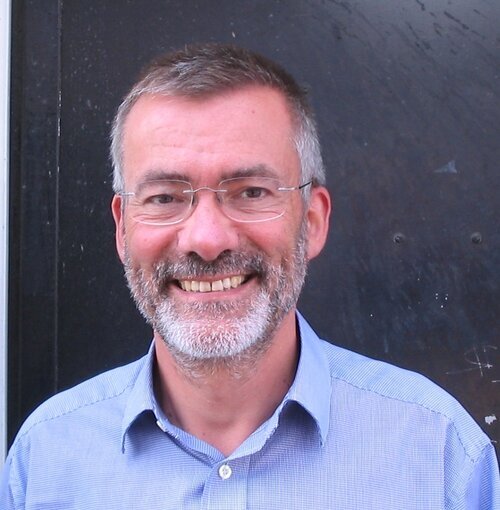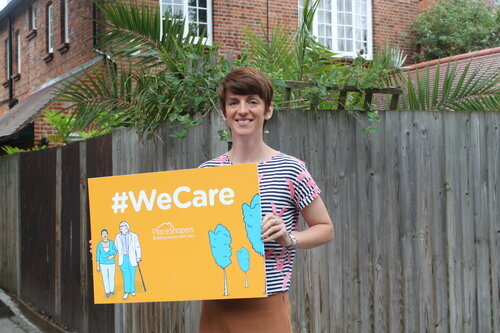
Our Blog

Working together in the shadow (and the light) of Covid-19
Caroline Bernard, writing about the importance of innovation and building back better, reports back from a discussion we had in our changing practices and relationships cell in July - ‘how can we ensure that these things do not sit with one brave individual, that “bends the rules without breaking the law,” but that everyone is on board and is willing to continue the networking and partnership building that you need in order to embed different approaches?’ Parity, Permission and Partnership are part of the answer…

Rebalancing power: what can funders do?
We’ve been talking about how to share power, and funders are an important part of this. In advance of our roundtable for charitable foundations on 23rd July, Katie Boswell from NPC writes here about what she has learnt from personal experience and also from talking to charitable foundations themselves. A survey of over 140 people working in foundations undertaken by the Grant Givers’ Movement found that almost 80% agreed that better redistribution of power would lead to more impactful grant making. Her advice to help achieve this is: focus on yourselves and understand your power; focus on grantees and communities and it will help you to change how you work; and focus on your own goals and use your influence to help achieve them.

Dave Hill: a tribute to a remarkable systems leader
Dave Hill was the Director of Children’s Services in Surrey and an inspirational figure who was transforming services. He sadly passed away suddenly on 23 June 2020. He had been working with Cate Newnes-Smith from our founding cell and with others across different sectors, and with the Better Way’s co-convenors, on Time for Kids, an initiative to improve the lives of children and young people in Surrey. Cate pays tribute to him in this piece and shows what a difference one person can make. She says, ‘Dave was a Systems Leader – he knew that his job was not just to change Surrey County Council’s services, but also to bring the whole “system” - re-imagining how the various public agencies and the third sector to work together as whole to serve children, young people and families.’

Uncomfortable truths: learning from Self-Reliant Groups
We’ve been talking about relationships and how to change practices to support them in one of our new ongoing cells. Noel Mathias, the founder of WEvolution, draws out lessons from the Self-Reliant Groups they support. ‘SRGs are informal groups of people – mostly women – who come together to save small amounts of money, support each other, learn new skills and go on to become unexpected entrepreneurs. In the process, they make life better for themselves and each other. Alongside their industry and economic output, SRGs, through their inner workings, churn out products like trust, healthy relationships and resourcefulness for the fragile socio-economic fabric around them.’ The lessons: step back, see social and economic as the same thing, and cede power.

Finding Strength in Solidarity
Reflecting on new research for the Listening Fund, Colin says ‘To show solidarity feels a natural, empathetic response to a crisis. We can see this reflected in the rise of mutual aid groups and the international convergence of voices around Black Lives Matter. Solidarity carries historical resonance too…’

So let’s talk about power
Continuing our series of blogs about #sharingpower, and against a backdrop of Black Lives Matter and Covid-19, Sally Young writes thoughtfully about the power we have and the power we need to challenge. ‘Many of us have power that we don’t realise or recognise - within our relationships, our family dynamic, our local communities, our workplaces, our activities and within our friendship circles. So how can we grow and share this, particularly with people and individuals who believe they are powerless?’

Remaking organisations: a chance to build and share power
Covid-19 is forcing many organisations to rethink their strategies. This is an opportunity, says Tom Neumark, the CEO of The Peel, to think differently about power:
‘Rather than thinking about how our organisations can win resources and power and then share the spoils, we should ask ourselves how we are building and sharing power everyday.’

Voice as value
Speaking at a Better Way event on 19 May 2020, Margo Horsley argues for more voices to be heard in order to build trust and create value. ‘It seems to me that voice as value might sit at the heart of transforming lives and that by enabling individuals to have their voices valued, they can contribute to a transformation of society … A new framework of meaning where voice as value sits at the heart of social action.’

Unlocking community led action after the pandemic
During the Covid-19 crisis, we’ve seen many example of community-led action, some more successful than others. Nick Gardham, CEO of Community Organisers, reflects on the lessons and how we can unlock the power of this action after the pandemic. ‘As we look beyond the pandemic it is time to start investing not just in place and the services that operate there, but in the work of building, developing and nurturing relationships and the intentional building of community power.’

Relationships: a reason for hope
David Robinson, writing a blog first published by Compass in Reasons for hope: why and how we can #BuildBackBetter, sees hope in the ways in which people have responded in the pandemic and believes it could lead to lasting change. For example, ‘a recalibration of risk and trust. Neighbours shopping and lending money to people they hardly know, doing things that would never be allowed in a Volunteer Manual. Statutory services giving budgets and discretion to front line staff, foundations and local authorities making grants to voluntary bodies without stifling constrictions. If the trust is honoured and the outcome positive, we won’t unlearn the experience.’

COVID 19 Relationships cast asunder, can a new world be built?
Duncan Shrubsole reflects on five conditions that might enable a new world to be built, post-Covid. ‘It falls to us now in this year, 2020, this generation to take this cruel and twisted disease to seize the opportunity to envisage, work for and achieve a better, fairer, stronger society. Do I think we can do it? Quite honestly I don’t know and I would be a fool not to have grave doubts, but Goddamit we will never forgive ourselves if we do not try.’

The biggest chance we will probably ever get
We must not romanticise a situation that denies a harsh but invisible reality for many people: the shocking inequality that has always existed is getting much worse under coronavirus conditions. But we do have the biggest chance we will probably ever get to build on a new and emerging way of working, where power dynamics are shifting in organisations and front-line staff become the solution.

Is Real Power Sharing Possible?
Our Call to Action encourages us all to ‘share power with people and communities’ and one of our Better Way principles is that ‘mass participation is better than centralised power.’ But how do we bring this about? A Better Way discusses with Henry Tam, author of Time to Save Democracy, what it takes for genuine power-sharing to be secured for communities.

Social landlords, what role can we play?
Rachael Orr from PlaceShapers, the national network of over 100 community-based housing associations, describes how their members are responding in many and creative ways to the Covid-19 emergency. And as well as responding to immediate needs, some are starting to ask themselves challenging questions about how they should work differently in the future, and the kind of local partnerships they should build.

Kindness, in my first 90 days at Mencap
Edel Harris has recently moved from Cornerstone to become CEO of Mencap and reflects on the role of kindness in that experience and in society more generally.
She writes ‘In my first 90 days as the new CEO of Mencap I have seen many acts of kindness; too many to list them all here. There is a growing body of evidence that consistently shows that positive relationships and kindness are at the very heart of our wellbeing and the absence of these relationships in our lives, and the lives of others, often leads to isolation and loneliness…

Solidarity Stirring
Clare Wightman writes: ‘My thoughts have been running to leadership - in a time of crisis what kind of leadership emerges and what kind do we really need?…We have always been driven to work with and for those stranded on the margins – the ‘vulnerable’ and isolated - to find something new and nourishing beyond organised services - uncovering hope, identity and purpose in the process. Uncovering leadership too.’ Grapevine has been finding novel ways digitally in the coronavirus crisis to create open spaces for people to express and enjoy themselves and connect with others.

Community is alive and well - policy makers take note!
Covid-19 has forced communities to mobilise and Avril, who has been at the forefront of efforts in Barking & Dagenham, shares lessons from that here. Relationships and the communities these underpin are key. She says ‘I’m trusting that after COVID-19, policy makers and funders will start to really invest in community-led models that build with people and agencies to grow an effective web of support, embedded in relational hubs. Here, people will receive the right support at the right time – whether through their community, local authority, health service or other providers. It’s not rocket science, but it does take a different mindset. Let’s learn through this crisis how to build tomorrow’s world, investing in relationally focused support, not the service-led approach we lived in yesterday.

Inventing the Future
To set the scene for our online roundtable on relationships on 24 March, David Robinson has written two blogs. In the midst of the coronavirus outbreak, in his second blog David asks the question: What do we need to do now to be able to look back on 2020 as the year when we not only helped one another in a crisis but as the year when we changed for good?

Coronavirus and social disruption
To set the scene for our online roundtable on relationships on 24 March, David Robinson has written two blogs. As social behaviour is disrupted by the Coronavirus, David Robinson reflects in the first that disruption is neither good nor bad. What matters is what we make of it.

Takepowerment!
There are many who find themselves deeply uncomfortable with the notion of "empowerment". After all, if power can be handed down by Lady Bountiful then it can surely be withdrawn by her, if her subjects fail to demonstrate sufficient gratitude. In fact, the history of social change is littered with examples not of “empowerment” but of “takepowerment”. One such example is Bramley Baths in Leeds, where local people took ownership and control and now run it as a successful community business. All well and good, but the real question, according to Richard, is: so what? Does community takepowerment really produce community benefits? And if so, is it possible to know what they are?
Featured Writing
